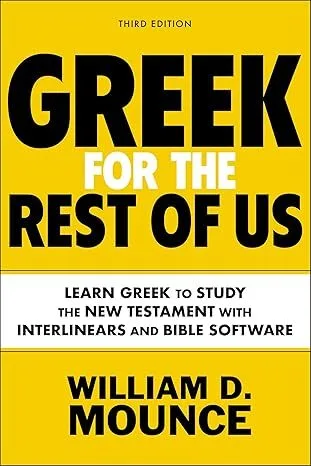Strong’s G4198: A verb meaning “to go, travel, journey,” commonly used in middle/passive form (poreuomai). In New Testament usage, it describes both physical movement and metaphorical progress in life or faith. Often carries theological significance regarding following Jesus or pursuing God’s will.
U- Unveiling the Word

Key Information
πορεύομαι

Strong’s Entry
g4198
Πορεύω represents purposeful movement or progress, whether physical or spiritual. In the New Testament, it appears frequently in Jesus’ commands (“go and…”) and descriptions of discipleship journeys. The middle voice form (πορεύομαι) emphasizes personal engagement in the journey. Early church writers expanded its meaning to encompass the Christian life as a deliberate journey toward God. Today, it reminds us that faith involves active movement and purposeful progress in following Christ.
N – Necessary Information
- Greek Word: πορεύω, poreuō, por-YOO-oh
- Detailed pronunciation: pohr-YOU-oh (stress on second syllable)
- Part of Speech: Verb
Etymology:
- Root: πόρος (poros) – passage, way
- -εύω (-euō) – verbal suffix indicating action
- Often used in middle/passive form πορεύομαι
D – Defining Meanings
- To go
- To travel, journey
- To proceed, conduct oneself
Translation Options:
- “Go” – basic movement meaning
- “Journey” – emphasizes purposeful travel
- “Proceed” – captures both physical and metaphorical progress
E – Exploring Similar Words
- ὑπάγω (hupagō, hoo-PA-go) – to go away – See G5217
- περιπατέω (peripateō, per-ee-pa-TEH-oh) – to walk around – See G4043
- ἀπέρχομαι (aperchomai, ap-ER-kho-mai) – to go away – See G565
R – Reviewing the Word’s Morphology
Morphological Features:
- Tense: Present, Future, Aorist, Perfect
- Voice: Active, Middle/Passive
- Mood: Indicative, Subjunctive, Imperative, Participle
- Person: First, Second, Third
- Number: Singular, Plural
Examples in different forms:
- Present Active: πορεύω (I convey)
- Present Middle: πορεύομαι (I go)
- Aorist Passive Participle: πορευθείς (having gone)
Cross-references:
- Related noun: πορεία (journey)
- Related adjective: πορευτός (traversable)
S – Studying Lexicon Insights
BDAG emphasizes its frequent middle voice usage. Thayer’s notes its metaphorical extensions. LSJ documents extensive classical usage. Vine’s highlights its spiritual applications. Strong’s connects it to purposeful movement. LEH notes Septuagint usage for life direction. Moulton and Milligan cite common usage in travel documents.
T – Tracing the Scriptures
First appearance:
Matthew 2:8: “And he sent them to Bethlehem, and said, [πορεύω] Go and search diligently for the young child; and when ye have found him, bring me word again, that I may come and worship him also.”
Additional References:
Luke 7:22
Acts 9:15
James 4:13
1 Peter 3:19
A – Analyzing Classical Usage
| Author: Work | Text |
|---|---|
| Xenophon: Cyropaedia | “The army [πορεύω] journeyed through the desert with great difficulty.” |
| Plato: Phaedo | “The soul must [πορεύω] proceed toward truth with pure intention.” |
| Thucydides: History | “They [πορεύω] marched against the enemy at dawn.” |
N – Noteworthy Summary
Πορεύω embodies the dynamic nature of Christian discipleship. Whether in Jesus’ commands to “go and make disciples” or in descriptions of spiritual progress, it reminds us that faith involves active movement toward God’s purposes. This word proclaims that following Jesus is not static but a journey of continual growth and mission.
D – Did You Know?
- The middle voice form (πορεύομαι) is used over 150 times in the New Testament.
- Early Christian missionaries adopted this term for their evangelistic journeys.
- The word influenced Christian pilgrimage terminology.
Strong’s G4198: A verb meaning “to go, travel, journey,” commonly used in middle/passive form (poreuomai). In New Testament usage, it describes both physical movement and metaphorical progress in life or faith. Often carries theological significance regarding following Jesus or pursuing God’s will.
Part of speech: Verb
Tags: journey, travel, mission, discipleship, movement, spiritual growth, commands of Jesus, Christian life, purposeful action, pilgrimage
Note: While this entry strives for accuracy, readers engaged in critical research should verify citations and keyword occurrences in their Bible translation of choice. For Biblical citations, the F.O.G Bible project recommends Logos Bible software.
Strong's g4198
Add Comment
God's Word is too vast for a single perspective. We all have a story, and as believers we all carry the Holy Spirit who is the Revealer. With this in mind - I would love to read your comments.




